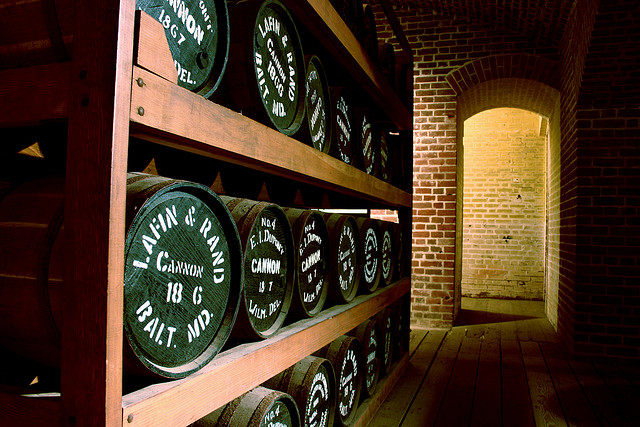Bombing Syria: the danger of unintended consequences
Posted By Tom Switzer on September 7, 2015 @ 15:00
The rise of Islamic State jihadists in Iraq and Syria continues to shock and horrify us. We are all familiar with the crimes against humanity: the videotaped beheadings, the grisly torture, the ritualized rape, the destruction of antiquities and the conquering and occupation of large parts of what was once known as Mesopotamia.
It’s for these reasons that the Australian government is likely to join the US-led air campaign to degrade and destroy Islamic State, also known as ISIS, in Syria. If indeed Canberra does take action in coming weeks, our leaders need to be sure that our intervention will make things better and not worse. Alas, there are good reasons for skepticism and caution. Here are three of them:
First, the Islamic State doesn’t represent an existential threat. Talk that the jihadists are worse or analogous to either the Nazis or Soviet Communists, as the Prime Minister and Foreign Minister argue, is neither accurate nor prudent. ISIS controls north-west Iraq and south-east Syria. But its GDP is only about US$4-8 billion (the equivalent of Barbados or Eretria). Its ideology disgusts and repels people, in and outside the Muslim world.
Moreover, the Islamic State has no navy, air force or ballistic missiles. Its army is about 40,000 (half of whom are deranged foreign recruits), which amounts to only two troop divisions. The network has no global power projection whatsoever. Underestimating terrorism is a mistake, but so too is endowing terrorists with far more power than they have.
Second, whose side are we on in this morally ambiguous conflict? As Abbott himself observed two years ago, the Syrian civil war ‘between two unsavoury sides’ was ‘not goodies versus baddies; it’s baddies versus baddies. [2]’ Not much has changed. It remains a war between the brutal Assad regime and violent Sunni fundamentalists.
We are, moreover, talking about the conundrum that is today’s Middle East. On the one side have been Saudi-led Sunni Gulf States, backed by the US, Britain and (quietly) Israel. On the other side are Russian-backed Iran, Iraq, Syria and the Shia militias. Hezbollah, a terrorist group in southern Lebanon formed by Shia clerics and supported by Tehran, has sent its fighters to Syria to defend Assad and the Alawite Army and fight Sunni jihadists. In fighting the Islamic State, we are forming de facto ties with Shia militias that, as Amnesty International and Human Right Watch have documented, have committed appalling human rights abuses against innocent Sunnis.
Third, be wary of the injunction ‘don’t just stand there, do something.’ Two years ago, the US and British governments wanted to launch strikes against the Assad regime in retaliation for its use of chemical and biological weapons. Yet their efforts were thwarted in both the US Congress and UK Parliament. Toppling the Assad regime would have simply created a security vacuum for various Sunni fundamentalist groups to exploit. Today, the calculus has been reversed. Our intervention instead will help consolidate the very regime whose indiscriminate deployment of ‘barrel bombs’ and use of chemical weapons has outraged the civilized world.
The US-led coalition needs formidable regional ground forces to couple with its air power as well as the prospect of a political solution. We have neither. US Defense Secretary, Ash Carter, recently acknowledged that air power won’t be sufficient to turn the tide against Islamic State in Syria. But neither are the local Syrian tribal fighters capable of taking and holding ground as the jihadists withdraw. Although the Russians and Saudis are seeking ways to force Assad to accept a political settlement, it’s far from clear how a change in leadership in Damascus assuages the very real fears that minority Alawites would be ethnically cleansed.
One of the lessons of the Iraq mission a decade ago was that wars are fraught with the danger of unintended consequences. According to President Obama precisely two years ago:
‘Sometimes what we’ve seen is that folks will call for immediate action, jumping into stuff, that does not turn out well, gets us mired in very difficult situations, can result in us being drawn into very expensive, difficult, costly interventions that actually breed more resentment in the region.’
And as Tony Abbott acknowledged at the time:
‘We’ve got to be very careful dealing in a powder keg like the Middle East that we don’t take action, well-intentioned action, which could end up making a bad situation worse.’
Such insights remain sound, especially when none of the supporters of action in Syria have a clear sense of the mission. Will intervention ease the suffering, or prolong and exacerbate it? What are the prospects of retaliation? What about the implications of isolating and marginalising Sunni Arabs in both Iraq and Syria? Instead of draining the jihadist swamp, could the airstrikes replenish it? Former CIA director David Petraeus supports arming the al-Nusra Front, the Syrian al Qaida affiliate, to defeat Islamic State, but could Coalition airstrikes unite these Sunni jihadists against a common foe?
The terror threat is real. But mobs of murderous thugs in the Middle East are hardly akin to a coherent power capable of threatening the US or Australia. The best way to defeating terrorism is not by launching endless wars in a vast region largely hostile to westerners. Our foremost weapons are our domestic anti-terror laws that allow electronic surveillance to track terrorists and their cells in the nation.
Article printed from The Strategist: https://www.aspistrategist.org.au
URL to article: https://www.aspistrategist.org.au/bombing-syria-the-danger-of-unintended-consequences/
URLs in this post:
[1] Image: http://www.aspistrategist.org.au/wp-content/uploads/2015/09/4377820277_41668e0cb3_z.jpg
[2] baddies versus baddies.: http://www.abc.net.au/insiders/content/2012/s3838363.htm
Click here to print.
